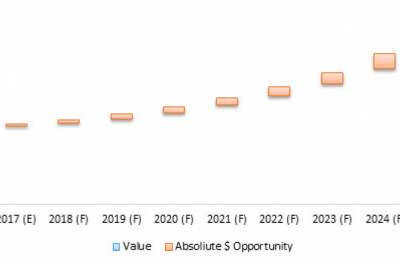views


The smart contract security audit can conduct a detailed analysis of the smart contract of the project. These measures are very important to protect the contract investment funds. Since all transactions on the blockchain are final transactions, once the funds are stolen, they cannot be recovered.
Typically, an auditor checks the code of the smart contract, generates a report, and submits the report to the project team for use. A final report is then released detailing any pending bugs and work done to address performance or security issues.
In the decentralised finance (DeFi) ecosystem, smart contract security audits are common. If you have invested in a blockchain project, your decision may be influenced in part by smart contract code reviews.
While most people understand the importance of auditing to cybersecurity, very few dig deep into a line of code. Let's take a look at the methods, tools, and results commonly used in smart contract security audits so you can make more informed decisions.
What is a smart contract audit?
The smart contract security audit will check and comment on the smart contract code of the project.
Typically, these contracts will be written in the Solidity programming language and provided by GitHub. Security audits are especially valuable if the DeFi project is processing blockchain transactions worth millions of dollars or has a large number of participants. Audits typically follow these four steps:
1. Provide the smart contract to the audit team for preliminary analysis.
2. The audit team presents their findings to the project team for action.
3. The project team makes modifications according to the problems found.
4. The audit team takes new modifications and pending errors into account before issuing a final report.
For many crypto users, smart contract audits are indispensable when investing in new DeFi projects. It has become the standard for important projects. Certain audit firms have also become industry leaders, increasing the value of their audit work in the eyes of investors.
Why do we need smart contract audits?
Huge amounts of value are traded or locked in smart contracts, making them easy targets for hackers. Even small coding errors can lead to huge amounts of money being stolen. For example, the DAO hack on the Ethereum blockchain took away about $60 million worth of ether and even resulted in a hard fork of the Ethereum network.
Since blockchain transactions cannot be reversed, it is crucial to keep the project code secure. The high level of security of blockchain technology makes it difficult to retrieve funds and resolve issues after the fact, so it is best to prevent possible breaches at all costs.
How does smart contract auditing work?
The process of smart contract auditing is fairly standard among auditing agencies. While each auditor's approach may vary slightly, the general process is as follows:
1. Determine the scope of the audit. Smart contracts and project specifications are defined by the project (its intended purpose) and overall architecture. Project specifications help the audit team understand project goals when writing and using code.
2. Provide an initial quote based on the amount of work required.
3. Run the tests. Its exact nature will vary depending on the audit team, their analytical tools and methods. Typically, both manual and automatic testing methods are used.
4. Create a first draft report containing errors found and provide it to the project team for feedback and subsequent corrections.
5. Consider the actions taken by the team to address the issues raised, then publish the final report.
Smart Contract Audit
Fuel Efficiency
Smart contract audits don’t just focus on blockchain security, but also efficiency and optimization. Some contracts will complete the intended function through a series of complex transactions. Due to the relatively high gas costs of networks like Ethereum, efficient contracts can save a lot of transaction costs.
Optimizing its performance is also an indicator of developer skill. Inefficient steps have more points of failure and should be avoided as much as possible. Smart contracts may not be enforceable when gas costs are high, especially when using gas low-cost constraints.
Contract Loophole
Much of the work in auditing involves checking contracts for security vulnerabilities. While some issues are easy to see, many exploits employ advanced techniques and tactics to siphon funds. For example, market manipulation can be combined with vulnerable smart contracts for flash loan attacks. To uncover these issues, auditors begin deciphering the testing process, simulating malicious attacks on smart contracts. Common vulnerabilities include:
1. Reentrancy problem: when one smart contract makes an external call to another external contract before any effects are resolved. Then, since the original contract's balance hasn't been updated, the external contract can recursively call the original smart contract and interact with it in a way it shouldn't.
2. Integer overflow and underflow: When a smart contract performs an arithmetic operation, but the output exceeds the storage capacity (usually 18 decimal places). This may lead to errors in calculating amounts.
3. Front-running opportunities: Poorly structured code can provide early warning of buying or selling in a market. This in turn allows others to use the information to conduct transactions for their own gain.
Platform Security Vulnerabilities
Most audits include looking at the network hosting contracts and even the APIs used to interact with the DApp. If a project could be vulnerable to a DDoS attack, or if its website UI is compromised, it means that users are actually connecting their wallets to malicious blockchain applications.
The BEP20 token standard, which functions similarly to Ethereum's ERC20 standard, is used by Binance's smart chain. Smart contract rules included in the BEP20 address ensure that anybody may use BSC to construct fungible digital tokens or currencies. You may send any digital asset to BSC as pegged BEP20 tokens.
Our dependable security auditing solutions can help you secure your BSC Smart Contract.
Your BSC application is ready to be released and constructed to secure user smart assets thanks to our market-leading security suite of BSC smart contract security analysis tools and competent assessment from our specialist smart contract auditors.












